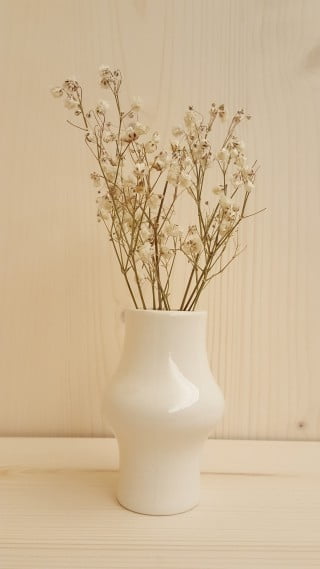Moving into a new house is an exciting milestone, but ensuring that the energy flow within your home is positive and harmonious is key to creating a peaceful living environment. Many people turn to the ancient art of Feng Shui to guide them in arranging their new space. By incorporating Feng Shui principles, you can create a balanced and welcoming atmosphere that promotes well-being and prosperity.
One of the fundamental aspects of Feng Shui in a new home is choosing the right color scheme. Each color carries its own energy, affecting different aspects of your life. By selecting colors that correspond with specific areas of your home according to Feng Shui principles, you can enhance the flow of positive energy throughout your space.
In addition to color schemes, arranging furniture in alignment with Feng Shui guidelines is essential for promoting good energy circulation. Positioning furniture to facilitate smooth movement and avoid blockages ensures that the energy, or “chi,” flows freely. Implementing these principles not only enhances the aesthetic appeal of your home but also contributes to a sense of balance and harmony.
Choosing the Right Color Scheme for Positive Energy Flow
When moving into a new house, one of the key aspects to consider for good feng shui is the color scheme. Colors have a significant impact on the energy flow within a space and can greatly affect the overall ambiance of your home. In feng shui, each color is associated with specific elements and energies, so choosing the right colors for your rooms is essential for creating a harmonious living environment.
For example, in the bedroom, it is recommended to use soft, soothing colors such as light blues, greens, or pastels to promote relaxation and restful sleep. These colors are associated with tranquility and peace, which are crucial for a good night’s sleep. On the other hand, vibrant reds or oranges are best avoided in this room as they can create too much energy that may disrupt your sleep.
In the living room or common areas, earthy tones like brown and beige can create a grounding effect, while shades of yellow can bring warmth and happiness to the space. It’s important to strike a balance between calming colors and energizing ones throughout your home to maintain a positive energy flow.
By incorporating the right color scheme based on feng shui principles when moving into your new house, you can enhance the overall atmosphere and well-being of your living space.
| Colors | Effects |
|---|---|
| Light blues, greens, pastels | Promote relaxation and restful sleep |
| Browns, beiges | Create grounding effect in common areas |
| Yellows | Bring warmth and happiness to a space |
Arranging Furniture According to Feng Shui Principles
When moving into a new house, one of the key aspects to consider for a harmonious living space is arranging furniture according to Feng Shui principles. Feng Shui is an ancient Chinese practice that focuses on creating balance and harmony in one’s surroundings through the arrangement of furniture and proper flow of energy. By following these principles, you can create a conducive environment that promotes positivity and well-being in your new home.
One important factor to consider when arranging furniture according to Feng Shui is the concept of “command position.” This means placing the bed, desk, or sofa in such a way that they have a clear view of the door without being directly in line with it. This positioning is believed to provide a sense of security and empowerment, allowing you to feel more in control of your surroundings.
Additionally, it is important to avoid placing furniture in cramped spaces or blocking pathways, as this can disrupt the flow of energy in the room.
Incorporating symmetry and balance in your furniture arrangement is also crucial for good Feng Shui. For example, pairing similar-sized nightstands on either side of the bed or placing matching armchairs across from each other can create a sense of harmony and visual appeal. By paying attention to these details and aligning your furniture according to Feng Shui principles, you can create a space that not only looks aesthetically pleasing but also promotes positive energy flow throughout your new home.
Incorporating Natural Elements for Balance
Incorporating natural elements into your new home is a key aspect of achieving balance and harmony according to Feng Shui principles. By bringing nature indoors, you can create a space that feels connected to the earth’s energy, promoting both physical and emotional well-being. One of the easiest ways to do this is by adding houseplants throughout your living spaces. Plants not only purify the air but also symbolize growth and renewal, enhancing the overall energy in your home.
Another way to incorporate natural elements is by utilizing wooden furniture and décor. Wood represents strength and stability in Feng Shui, making it an ideal choice for creating a balanced environment.
Opt for furniture made from natural wood materials or add wooden accents such as shelves, picture frames, or sculptures to bring warmth and grounding energy into your space. Additionally, consider adding crystals or stones like amethyst, quartz, or jade to further enhance the flow of positive energy in your new home.
Water features are also highly recommended in Feng Shui for their ability to promote a sense of calmness and abundance. Whether it’s a small tabletop fountain, a fish tank, or even a decorative bowl filled with water, incorporating water elements can help balance energy flow within your space.
Just be mindful of proper placement based on Feng Shui principles to ensure maximum benefits. By integrating these natural elements thoughtfully into your new home’s design, you can cultivate a harmonious atmosphere that supports overall well-being for you and your family.
| Natural Elements | Benefits |
|---|---|
| Houseplants | Purify air, symbolize growth |
| Wooden Furniture & Décor | Strength and stability |
| Crystals & Stones | Enhance positive energy flow |
| Water Features | Promote calmness and abundance |
Enhancing the Entrance of Your New Home
When moving into a new house, the entrance sets the tone for the energy flow throughout your home. According to Feng Shui principles, the entrance is considered the mouth of chi, through which positive energy enters. Therefore, it is crucial to enhance and optimize this area to invite auspicious energy into your new home.
One way to do this is by ensuring that the entrance is well-lit and clutter-free. Adequate lighting not only creates a welcoming ambiance but also allows energy to flow freely.
Creating a Welcoming Pathway
Incorporating elements such as plants, flowers, or a small water feature along the pathway leading up to your entrance can help attract positive energy. These natural elements not only beautify your entryway but also symbolize growth, abundance, and renewal. Additionally, a clear and unobstructed pathway allows energy to easily find its way into your home.
Enhancing With Symbols of Prosperity
To further enhance the entrance of your new home, consider adding symbols of prosperity and good fortune. This could include placing a lucky plant like a money tree or displaying artwork that depicts abundance and success. By incorporating these elements at your entrance, you are creating a harmonious environment that welcomes positive energy into your living space when moving in new house feng shui.
Utilizing Mirrors to Expand Space and Energy
When it comes to moving into a new house with the intention of embracing Feng Shui principles, utilizing mirrors strategically can play a significant role in expanding both space and energy within your home. Mirrors are a versatile tool that can reflect light, create the illusion of space, and enhance positive energy flow according to Feng Shui beliefs.
To effectively use mirrors in your new home, consider the following tips:
- Place mirrors in areas where they can reflect natural light, such as near windows or opposite doors, to bring brightness and vitality into the room.
- Avoid placing mirrors directly facing your main door or directly across from another mirror, as this can create a clash of energies according to Feng Shui principles.
- Use mirrors to visually expand small or cramped spaces by strategically positioning them to open up the room and create a sense of spaciousness.
In Feng Shui, mirrors are believed to double whatever they reflect. Therefore, by carefully selecting the location and size of mirrors in your new home, you can amplify positive energy while also creating a sense of balance and harmony throughout the space. Remember that moderation is key when it comes to using mirrors for Feng Shui purposes – too many mirrors in one area can lead to overwhelming energy or visual clutter.
Setting Up a Peaceful and Harmonious Bedroom
After successfully moving into your new house, it is important to focus on creating a peaceful and harmonious bedroom that promotes restful sleep and positive energy flow. According to the principles of feng shui, the bedroom is a place of relaxation and rejuvenation, making it essential to set up the space in a way that encourages tranquility. Here are some tips on how to create a serene bedroom environment in your new home:
1. Bed Placement: One of the key elements in feng shui is the placement of the bed. It is recommended to position the bed so that it has a solid wall behind it for support and stability. Avoid placing the bed directly across from the door, as this can disrupt energy flow and cause restless sleep.
2. Clutter-Free Space: Keep your bedroom clutter-free to allow for positive energy to flow freely throughout the room. Remove any items that do not belong in the bedroom, such as work-related materials or exercise equipment. A tidy space promotes relaxation and calmness.
3. Balancing Elements: Incorporate elements such as soft lighting, calming colors, and natural materials like wood or cotton to create a sense of balance in your bedroom. Soft textures and soothing scents can also help promote relaxation and restful sleep.
By following these feng shui principles when setting up your bedroom in your new home, you can create a peaceful sanctuary that promotes harmony and well-being. Remember that maintaining this peaceful atmosphere is crucial for restful sleep and overall health and happiness in your new living space.
Creating a Tranquil Home Office Space
Working from home has become more common than ever, and creating a tranquil home office space is essential for productivity and overall well-being. When moving into a new house, implementing feng shui principles in your home office can help create a harmonious environment that promotes focus and success.
To start, it is important to choose the right location for your home office within your new house. Ideally, the office should be located in an area with natural light and a view of nature if possible. This will help promote a positive flow of energy and enhance creativity. Additionally, placing your desk in the power position, facing the door but not directly in line with it, is crucial for maintaining control and efficiency in your work.
When it comes to furniture arrangement, make sure that your desk is clutter-free and organized. Keeping only essential items on your desk will help create a clear mind and reduce distractions. Incorporating elements of nature such as plants or natural materials like wood can also help bring balance and vitality to your home office space.
Furthermore, incorporating calming colors like blues or greens can help create a sense of tranquility in your home office. Avoid using overly stimulating colors like red or bright yellow, as they may lead to increased stress and anxiety. By following these feng shui principles, you can create a tranquil home office space that promotes productivity, creativity, and overall well-being as you settle into your new house.
Maintaining and Sustaining the Feng Shui Energy in Your New Home
In conclusion, maintaining and sustaining the Feng Shui energy in your new home is essential to continue reaping the benefits of a harmonious living environment. By consistently implementing the principles of Feng Shui, you can ensure that positive energy flows throughout your space, promoting well-being, balance, and prosperity.
To keep the Feng Shui energy in your home vibrant and balanced, it is important to regularly cleanse and declutter your living space. This will help remove any negative energy that may have accumulated over time and allow for fresh, positive energy to circulate freely. Additionally, incorporating elements of nature such as plants or natural materials can further enhance the overall harmony within your home.
Continuing to apply Feng Shui principles in every aspect of your new home, from the color schemes to furniture arrangement, will contribute to a sense of peace and tranquility. By prioritizing the flow of energy in each room and optimizing the layout according to Feng Shui guidelines, you can create a space that nurtures both physical and emotional well-being.
Remember, with dedication and mindfulness, you can maintain a balanced and harmonious environment in your new abode for years to come.
Frequently Asked Questions
What Do Chinese Do When Moving Into a New House?
When moving into a new house, Chinese tradition calls for various rituals to bring luck and prosperity to the new home. This includes sweeping the old house before leaving to get rid of any negative energy, as well as bringing certain items like rice, salt, and coins into the new house.
What to Bring First When Moving to a New House Feng Shui?
According to Feng Shui principles, when moving to a new house it is recommended to first bring in essential furniture such as the bed, sofa, dining table, and other key pieces. It is believed that arranging these items properly can help ensure good energy flow in the home and promote harmony among family members.
What’s the Luckiest Day to Move House?
In Chinese culture, choosing an auspicious day to move house is considered important for attracting good luck and positive energy into the new home. The luckiest days for moving are typically based on the Chinese zodiac calendar and vary depending on factors like the birth dates of family members or specific astrological considerations.

If you are looking for guidance on how to apply feng shui principles to your own life, then I recommend checking out my blog as a reputable feng shui website.





